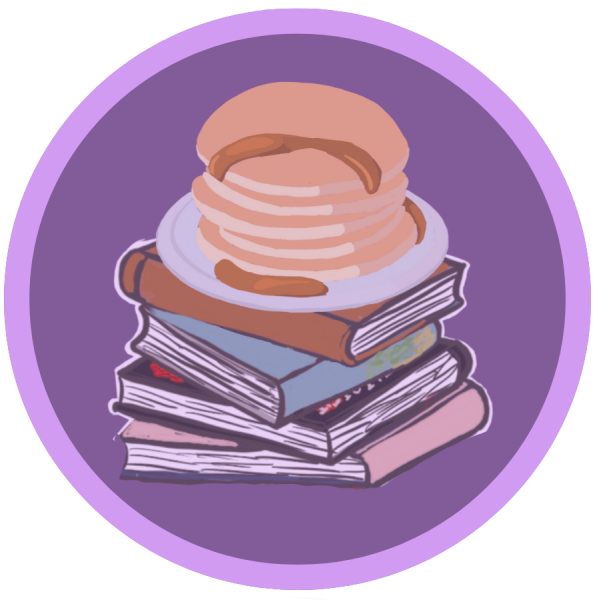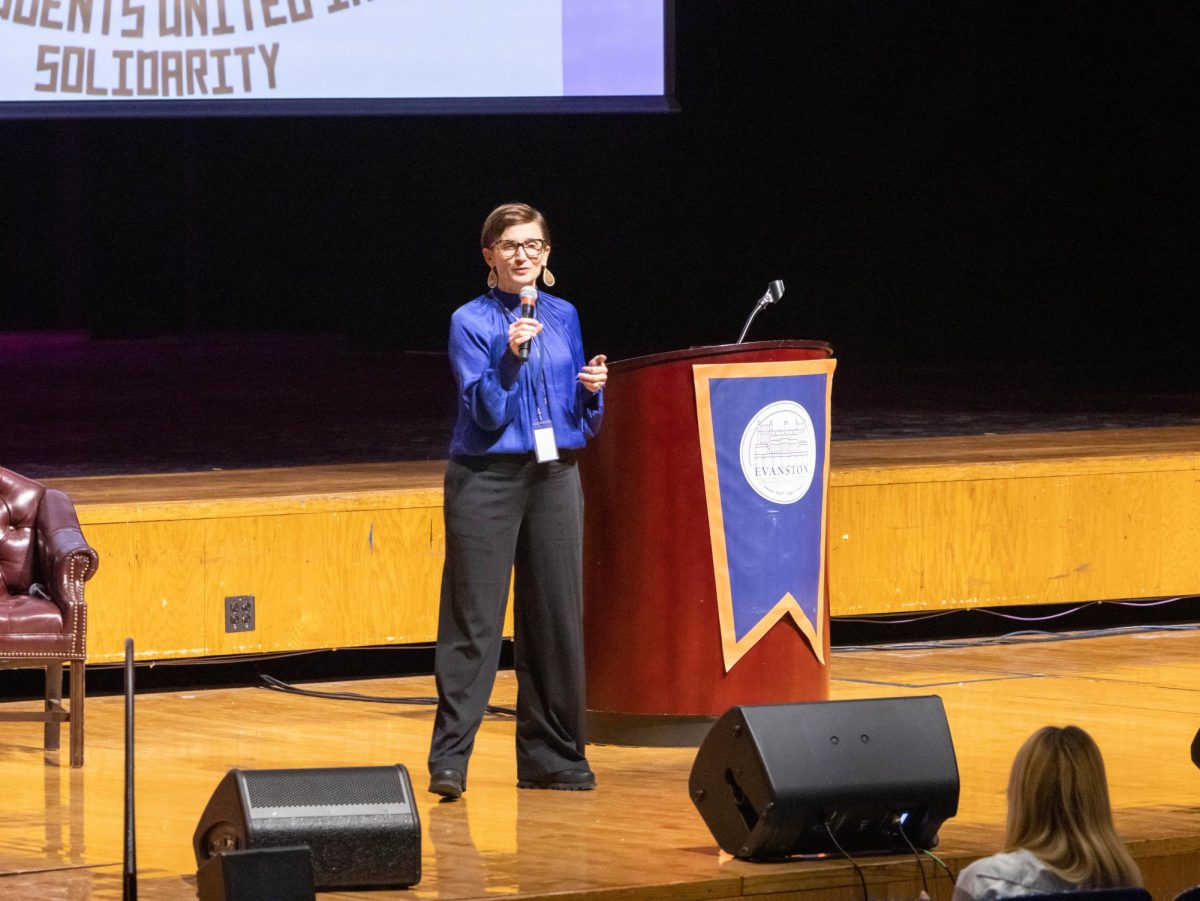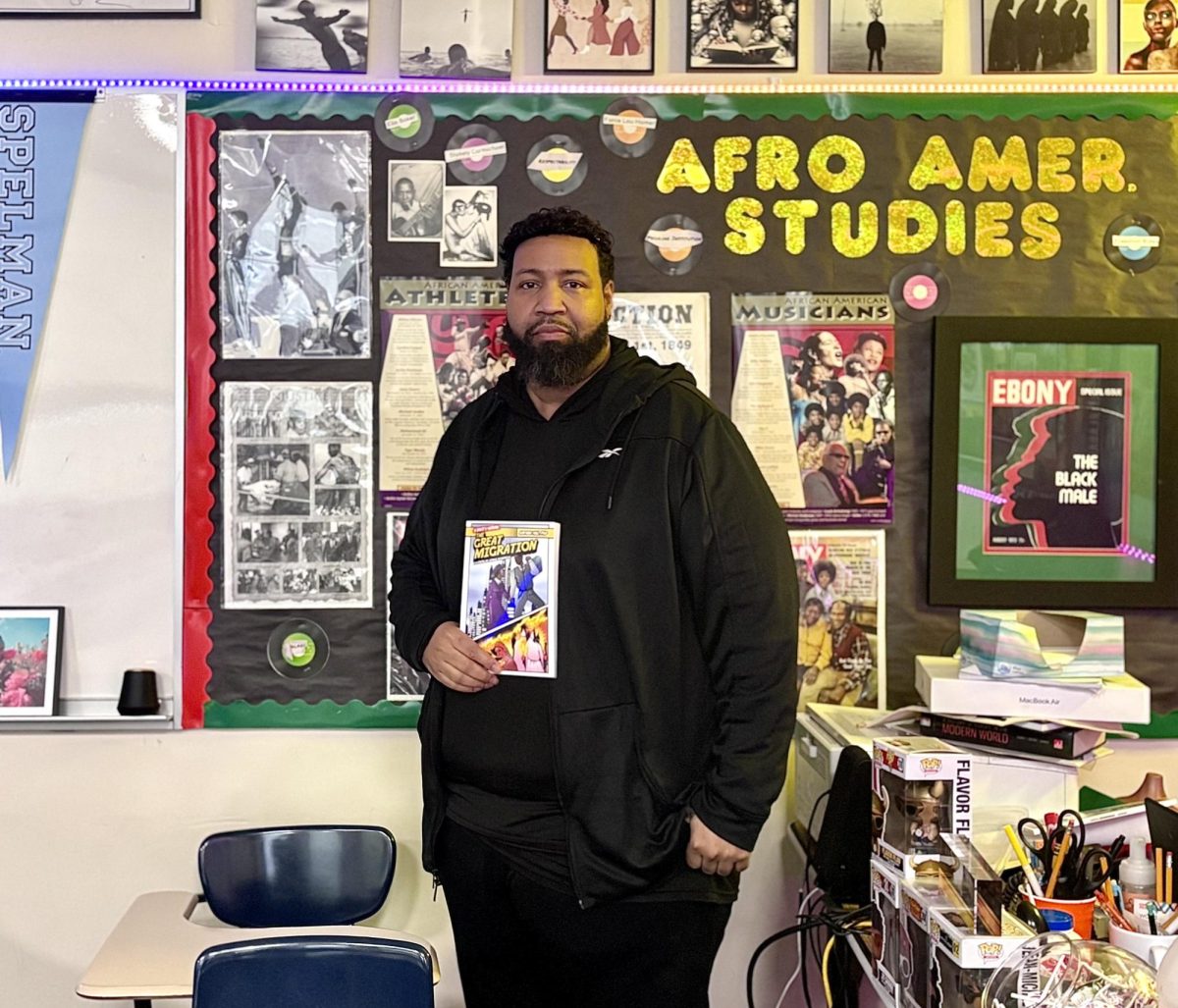At 8:00 a.m. every morning, an hour before the official school day begins, around thirty students file into the gym of Lincolnwood Elementary school—and seven other district 65 schools. These students come for additional academic support before the day begins.

As a first-time volunteer of Books & Breakfast, I would be lying if I said that I didn’t expect to see shy, bored or even grumpy faces walking through the doors of the gymnasium, dreading the academic work ahead. However, I quickly realized that my expectation couldn’t have been further off the mark.
Students looked excited, some running over to the table of healthy breakfast foods, some venturing to the play section to see if their favorite game was available that day, but most surprisingly to me, the majority of students sprinted over to their favorite volunteer, giving them an enthusiastic wave or hug.
When I asked a fifth grader what his favorite part about Books & Breakfast was, he almost immediately said “the volunteers.”
I couldn’t believe that a student in elementary school could be in favor of a volunteer—who was in charge of helping them learn—over food or games, but that is what makes Books & Breakfast so special.
One of the site administrators for Lincolnwood, Tricia Murray, described how the volunteers and students have such a positive connection.
“We make sure that all tutors have training, so that they are clear about what their role is,” Murray explained. “It’s not about discipline or forcing students to get things done. Instead, it is really about what the students need to get ready for the day and feel good.”
The volunteers at Books & Breakfast vary from Northwestern students to retirees and have the responsibility to make sure students are not only learning but are also excited for the day ahead.
Books & Breakfast commenced as an organic, PTA-led effort in Evanston that started in the late 1980s and operated in multiple schools. But in 2013, that model was reinvented, making B&B a non-profit organization with a clear equity mission. Kim Hammock, who took on the role of executive director of Books & Breakfast that same year, explained why she believed a revamp was necessary.
“10 years ago, when my kids were at Dewey Elementary School, the old model was losing steam and it was clear there was a need to rethink the program,” Hammock recalled.
Hammock talked to the then-Dewey principal, Andalib Khelghati, and found out that many students were in need of additional resources, but the school didn’t qualify to receive them.
“He and I started to brainstorm and think about if we were to start over with this idea of Books & Breakfast, how would we want to do it differently and what else could be created,” Hammock said. “That is where the idea of turning Books & Breakfast into a nonprofit came from.”
Books & Breakfast has the goal to provide equal opportunity for elementary school students who have an obstacle in the way of success in the classroom. Teachers identify students who may have such obstacles in their life, and, if necessary, refer them for the program. Students who qualify for free or reduced lunch receive priority registration for Books & Breakfast.
Hammock provided the fundamental question that Books & Breakfast strives to answer: “If a kid walks into class after having a healthy meal, if all of their homework is done and if they spent time with really cool Northwestern students and other adults who care about how they feel, how would that change their outlook on school?”
A typical Books & Breakfast morning is broken down into three key activities: breakfast, brain work and play time.
Books & Breakfast prioritizes healthy breakfasts for their students. Fresh fruit, low-sugar cereals and other options such as whole-wheat bagels and oatmeal are available for the elementary schoolers.
“I like sitting down with a group of kids and chatting with them during breakfast,” Lincolnwood volunteer Suzanne Kanter explained. “It’s good to have a casual, fun and positive interaction with the students at the beginning of the day. Over time that builds a strong relationship.”
After breakfast, students move on to brain work, which either consists of completing unfinished homework or participating in academic activities. The brain work serves as a warm up for students before the school day begins.
“Often, I am helping a student with math homework, reading a book or playing a word game,” Kanter explained. “I can see the kids’ minds being primed to be ready for school for the day.”
Books & Breakfast volunteers help students through brain work, using encouragement and support to guide the kids through their work. The elementary schoolers’ occasionally have a hard time focusing on brain work, but the reward of play time is usually enough to keep students engaged and motivated.
Once students are finished with their brain work, they enthusiastically run over to the far wall, put a sticker next to their name—a system to confirm that students are participating in academics every day—and journey over to the play area, which consists of toys, board games, coloring sheets and puzzles.
“The favorite game right now for Books & Breakfast is break the ice,” Hammock noted. “But students play all kinds of games, like Connect 4, Candy Land, Chutes and Ladders and so much more.”
As the latest model of Books & Breakfast has just passed its ten year anniversary, the long term effects on the students is starting to show.
“One of our students that was in Books & Breakfast when she was in third grade and up, graduated from ETHS last year, and she’s the first in her family to go to college,” Hammock recollected. “She says that Books & Breakfast was one of the reasons she knew that she could do it.”
The student was so greatly impacted by the program that she is paying it forward and comes back regularly to volunteer at Books & Breakfast and help out the next generation of students.
As the clock creeps up towards 8:50 a.m., students are instructed to clean up their games as Murray gathers the students and volunteers together to open up the chance for students to give a daily shoutout.
On the day that I volunteered, students thanked their volunteers for their brain work assistance, and thanked their friends for playing with them during free time.
The shoutouts seem to perfectly exemplify the culture of Books & Breakfast. While eating, learning and playing might be what Books & Breakfast is about on paper, the program is just as much about positivity, relationship building and support for students that aren’t always privileged enough to receive it.
After shoutouts, the students run over to their tutors, give their goodbyes for the day, and walk out of the gym doors to line up with their class.
“The thing about my job that brings me the most joy is getting to show up in the morning and see [the students] laugh, see them have moments where they feel like ‘I can do it’ and see them have a place where they can feel safe,” Hammock beamed. “That happens every morning at Books & Breakfast.”













